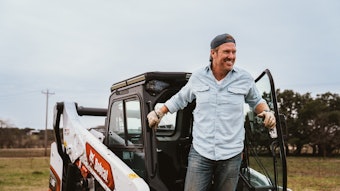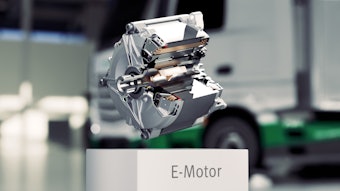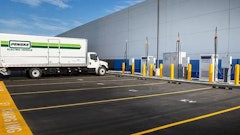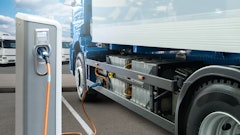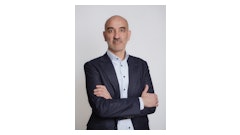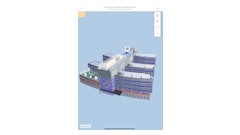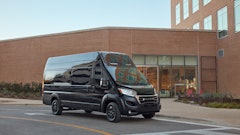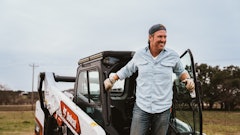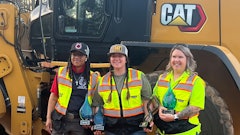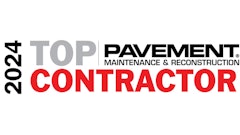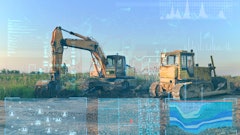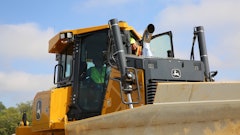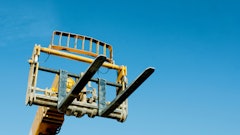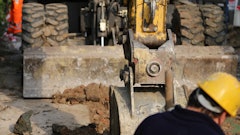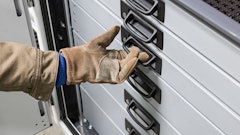
It is still a bit nuts out there. The economic and construction ball just keeps going up and down, up and down.
- Inflation is still with us, and it looks like it will be tough to get rid of.
- Because of inflation, it looks like interest rates will keep rising and be around longer than anticipated.
- While some material costs have decreased, supply chain issues continue to drive the purchasing folks nuts.
- Electric vehicles (EV) is still at the top of the list when it comes to looking at new equipment, but there are alternatives.
- And if I see or hear one more ERC commercial, I am going to put a hole in the TV.
- AI, I hope, will replace the ERC hype. And AI sooner rather than later will have you managing your work without getting out of bed.
What all this tells me, from a financial perspective for just about every business out there, is TO MANAGE THE BALANCE SHEET to avoid cash flow and bank covenant issues.
With a number of dealer groups I work with, there is an understanding that whatever happens in the auto industry will soon show up on their doorstep. And nine times out of 10, that premise holds true. When you think about it, what happens at the dealer and rental company level falls on your plate, too. In short, what happens in the auto industry probably impacts your business, as well.
So, I would like you to go on YouTube and search for Wealthion Lucky Lopez. It is a 51-minute presentation that will inform you about what to take into account in terms or your equipment needs going forward. I watched this program three times and concluded that it all makes sense, because the discussion ties it all together. After you take the plunge, it will be a lot easier to make your CapEx decisions for 2023. Lucky is not only a car nut, but also an auto industry nut. He owns dealerships, auction operations, deals in auto purchase and lease paper, and as a result touches all aspects of the industry, which helps him form his thoughts on the cycle taking place.
In terms of alternative fuels and EV, to replace most diesel or gasoline machines, you have options, but it is not a one-size-fits-all solution. You have BATTERY ELECTRIC, DIESEL- ELECTRIC HYBRIDS, HYDROGEN and HYDROGEN FUEL CELLS. As of now, EV is up and running, with the others close behind.
My concern with the new green, eco-friendly models is the cost, versus what you would have to pay (if you can get a new unit) for the standard propulsion system you have been using. I understand the need to reduce emissions, but I also understand that higher priced new units will require a higher cost to be passed on in your bids to customers. And when I hear that some new units can cost two to three times the cost of the current models, that worries me.
From what I have seen and read, it appears the cost of operation of the new operating systems will have a lower cost, which will make up for the initial higher cost of ownership. But in the meantime YOU HAVE HIGHER COSTS TO DEAL WITH that will impact cash flow, insurance cost, debt service and bank covenants. And believe me these HIGHER COST issues are major issues to be dealt with.
- A $50,000 unit at 8% over 60 months will require a $1,104 monthly payment with $10,829 of interest.
- A $150,000 unit at 8% over 60 months will require a $3,041 monthly payment with $32,000 of interest.
Sure, you will have an income tax benefit if you use bonus depreciation and/or Section 179, assuming you have taxable income to offset the deprecation against. But remember, when you sell the unit you will have a 100% recapture on the selling price, no matter what your book value is.
So, I have two concerns. Will you be able to pass these higher costs on to customers? Because if not, cash flow will suffer. The second concern being the increase in fixed cost, higher interest payments and an increase in bank debt or lease payments, all of which could negatively impact bank covenant ratios. And one last concern addresses collateral values.
Bank loans are based on collateral values. They like to be covered on the loan to value (LTV) ratios, because if they are not, it will cause them a load of trouble, which will be passed on to the borrower (that’s YOU). As with many new products that hit the market, the initial cost to purchase is high, which then decreases as more units are produced. You can expect to have the value of your used piece of equipment decrease in value, maybe forcing the LOV ratio to go negative. Believe me, I have been through this before. . . “Mr./Mrs. Customer, we find that your equipment value is less than the outstanding balance and YOU have to fix that.” The bank will not care if your maintenance on the new unit is lower then your spend on the old equipment; they will request payment to put the ratio back to where they need it to be. Watch the auto presentation to see what I mean.
In the end, in this economic environment, I believe the balance sheet has to be as strong as you can make it. Consequently, CapEx expenditures need to be carefully considered before you sign your name to the contract.
You may want to ask the rental companies you use to rent you one of these new products to see how it works before you commit to a purchase. Or, you may want to rent until the pricing comes down to more realistic prices. Or you may want to wait until some of the other alternative machines are available for sale. But, whatever you do, please be careful and make sure cash flow is properly maintained.




